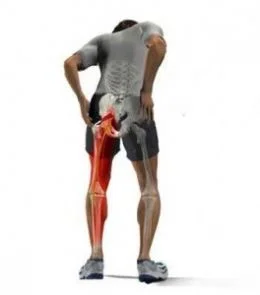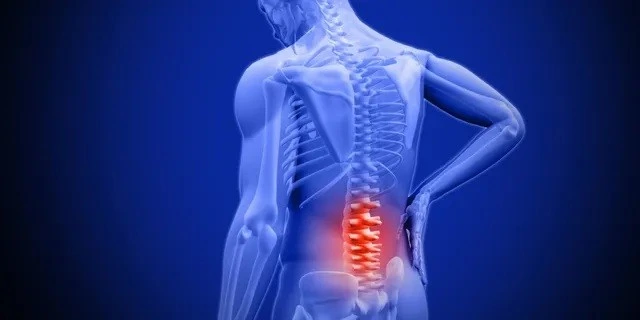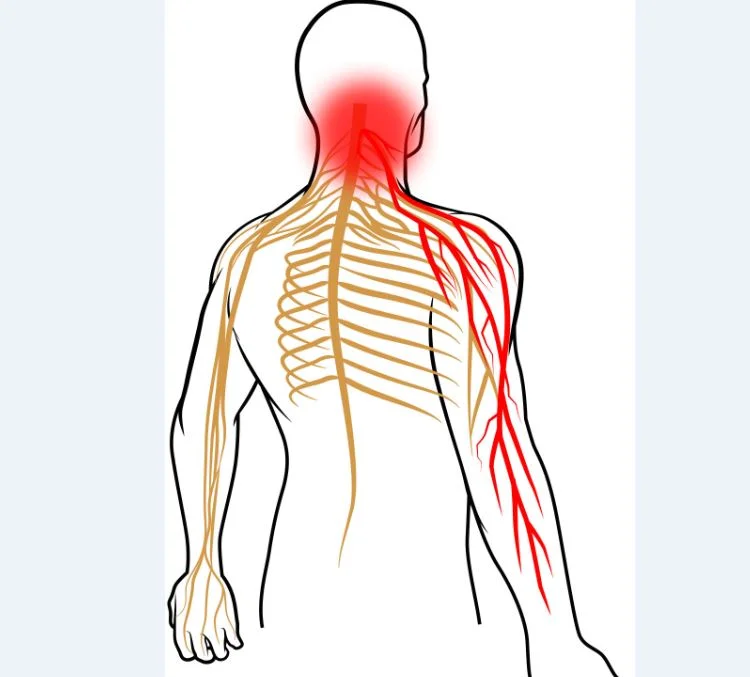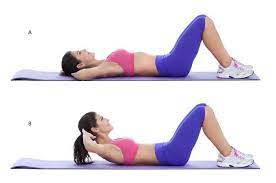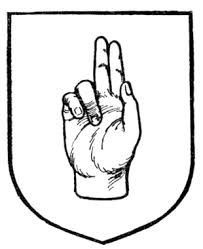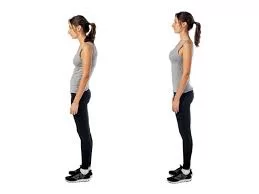A Pinched Nerve in Hip
The pain from a pinched nerve in the hip can be serious. You may have pain when you move, or you may walk with a shuffle. The pain can feel such as an ache, or it may burn or tingle. You may have numbness that can spread down your leg.
A pinched nerve happens when tissues press on the nerve, causing tingling or even weakness. A pinched nerve in your hip can be started by different things, involving:
- sitting for extended periods of time
- pregnancy
- herniated disc
- arthritis
- muscle strain
- bone spur
- being overweight or obese.
Table of Contents
What does a Pinched nerve in the Hip feel such as?
- A pinched nerve feels various from a stiff back, though the pain and symptoms vary among different people. A pinched nerve in the hip sometimes causes pain in the groin. Sometimes the pain radiates down the inner thigh. It can move to the knee as well.
- If you have a pinched nerve in your hip, walking will create it worse. The too much activity you do, the worse the pain should become. The pain may feel such as a dull ache or it may be a sharp, burning pain. You may experience painful numbness, especially in the buttocks, or a tingling sensation. Certain people also notice a tight feeling.
What Causes a Pinched Nerve in the Hip?
- Various nerve roots pass through the hips, with certain of the most notable ones being the sciatic nerve, the femoral nerve, the pudendal nerve, and the obturator nerve.
- The sciatic nerve in particular is prone to nerve harm or pinching, and it is the one most likely to be affected and become pinched at the hip level due to issues like tight muscles (especially tight hip flexors), piriformis syndrome, pregnancy, excessive body weight, as well as prolonged periods of inactivity. This then leads to sciatica, also referred to as sciatic pain, which can run from the lumbar spine down through the hips, and even legs.
- However, in certain cases, either of the nerves mentioned above can become affected by spinal compression at the level of the lower spine, since that is where they all branch down from. In other words, these nerves can become pinched at the lower back level but conduct pain that is felt at the hip level.
Home remedies for A Pinched Nerve in Hip
- Many pinched nerves resolve on their own and do not need medical treatment. There are many home remedies to try, yet it is still best to double-check with your doctor first. They can rule out other conditions that may require various treatments.
- To treat the condition at home, begin with rest and over-the-counter (OTC) anti-inflammatory medications, such as ibuprofen (Advil) or naproxen (Aleve). Find out when you should grab ibuprofen or naproxen.
- Ice and heat can also assist. Ice reduces swelling and heat assists your blood circulation, which may help reduce pain. Alternate between the 2.
- While you are resting, avoid sitting or standing in a position that increases your pain. That could be a sign that you are putting additional pressure on the pinched nerve. The pinched nerve may cause serious pain in the hip, buttocks, and legs.
- You may also be able to do gentle stretches and exercises to assist relieve the pressure. You can do these in the middle periods of rest.
Piriformis stretch

- Depending on where your pain is, some stretches could be assisted. When the piriformis is tight, it can put down pressure on the nerves. To stretch that area, follow the steps under.
- Lay hold a seat with legs bent in front of you,
- Rest the ankle of the harmed side on the opposite knee. Then sleep down flat on your back,
- Bend your bottom leg so that you can grasp your knee with both hands,
- Gradually pull the knee in towards your body,
- To improve the stretch, move your hand down to grasp your ankle and pull the leg gently towards the opposite hip,
- Hold the stretch for ten seconds,
- Change legs and repeat the stretch,
- Do the stretch 3 times per leg.
Core strengthening
- Often, a pinched nerve in the hip is caused or exacerbated by a weak core, so working on strengthening your abdominals and back is assist. The plank exercise tones the whole core.
To do a plank:
- Lie flat on your stomach,
- Place your forearms flat on the ground, with your elbows aligned under your shoulders,
- Roll your toes below so that the balls of your toes are flat on the floor,
- Push up onto your forearms and toes and hold this position for thirty seconds,
- Your back should be level, and your body should form a straight line from your head to your toes.
Gentle exercise
- Staying active is crucial for keeping away pinched nerves, so make sure to take plenty of standing and walking breaks throughout the day. You can also try these stretches for sciatica pain relaxation.
- If you work at a desk, take short stretching breaks every hour, or talk to your human resources department about utilizing a standing desk. If you spend a large area of your day on your feet, make sure you are wearing shoes that provide good support. The proper shoes can assist reduce pressure on your hips and spine.
Practicing good posture
- The way you sit and stand may put more pressure on a pinched nerve. Small changes to your posture may assist reduce the pressure and relieve your pain. When you stand, focus on evenly distributing your weight to both feet, and retain your shoulders back. To practice good posture while sitting, retain both feet on the floor. That means you should keep away from sitting with your legs crossed. Keep your spine straight and your shoulders pulled back to keep away hunching over. Here are more tips for the best posture while sitting.
Benefits of Spinal Decompression Therapy with the Backrack
- The special shape of the Backrack device mirrors the natural curvature of the spine. It is equipped with 2 wooden nodules on each one of its rows. These nodules assist massage the spine as you perform a specific set of exercises that target the lower region of the back as well as the hips.
- Because these nodules exert pressure on personal points of the spine and can target its deeper structures, they can re-create the space between vertebrae so that any trapped nerve becomes free again. When a nerve is to no extent pinched, the pain, along with any other symptoms it was causing, shall subside.
When should I see the doctor?
- If the pain is very much uncomfortable or has lasted for more than a couple of days, it is time to see your doctor. In addition to telling your doctor, you may want to try working with a chiropractor, acupuncturist, or massage therapist. According to recent recommendations from the American College of PhysiciansTrusted Source, methods like massage, acupuncture, heat, or spinal manipulation should be used before medication for low back pain.
- A physical therapist may also assist. Physical therapists can instruct you on exercises to strengthen and stretch the muscles around the pinched nerve.
Recovery
In common, pinched nerves resolve on their own within a few days or weeks. You may be able to increase the recovery process with home treatments, such as:
- ice and heat,
- exercises and stretches,
- over-the-counter pain medications,
- rest.
- If symptoms do not increase with treatment, or if you think they are getting worse, talk to your doctor.
Preventing a pinched nerve
- To cure a pinched nerve in the hip, make sure to take care of your muscles. If you have a job or hobby that needs you to lift heavy loads, be extra diligent about proper form.
Remember these tips:
- Fold at the knees, not the back,
- Ask for assistance when lifting heavy or awkwardly shaped objects,
- Avoid lifting heavy objects while injured, which could create your condition worse,
- Other cure measures to consider are maintaining a healthy weight and getting regular exercise. In particular, strengthening your core and back muscles can assist prevent future injuries.
FAQs
Recovery. Mostly, pinched nerves recover on their own within a few days or weeks. You may be able to improve the recovery process with home treatments, such as ice and heat.
Yes, most will with time (normally 4 to 6 weeks). You can increase symptoms with rest and pain medications such as naproxen, ibuprofen, or acetaminophen.
The sciatic and pudendal nerves are susceptible to entrapment in the posterior hip part. In the subgluteal space, the sciatic nerve can be entrapped as it passes under the piriformis and over the obturator, Gemelli, and/or quadratus femoris muscles.
Without proper treatment, a pinched nerve can create more serious conditions such as peripheral neuropathy or disc degeneration. You may have a general illness and chronic pain as a result of an untreated pinched nerve.
MRIs create images utilizing a radiofrequency magnetic field, a technique that clearly shows pinched nerves, disc disease, and inflammation or infections in the spinal tissues. MRI is commonly the preferred imaging for pinched nerves.
Any difference in ligaments, tendons, or bones can put undue stress and compression on your nerves, causing a pinched nerve and all the discomfort that comes with it. Bone spurs, which can develop on any bone but are most usually at the joint, are one malformation that can contribute to pinched nerves.
If you believe you may be suffering from a pinched nerve, you should always visit an orthopedic surgeon close to you to ensure that is the problem and rule out any more severe spinal issues. These doctor visits can also help determine if a more chronic ailment, such as spinal arthritis, is to blame.
Hip problems, such as arthritis in the hip, commonly cause groin pain, pain when you put weight on your leg, or when the leg is moved around. If your pain starts in the back and moves or radiates regards the hip or down the leg and you have numbness, tingling, or weakness in the leg, sciatica is the most likely cause.

